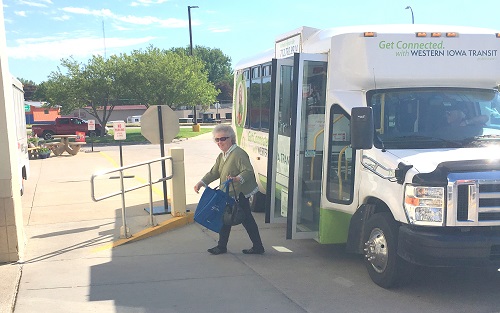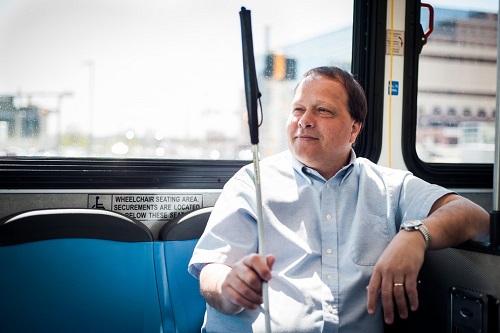Rural Transportation Planning
 Transportation planning requires a cooperative effort that fosters involvement by all potential users of the system. The final rule on Statewide and Nonmetropolitan Transportation Planning and Metropolitan Transportation Planning, published in May 2016, places greater importance on planning in non-metropolitan, or rural, areas, and requires states to cooperate with local officials to develop statewide and nonmetropolitan planning activities.
Transportation planning requires a cooperative effort that fosters involvement by all potential users of the system. The final rule on Statewide and Nonmetropolitan Transportation Planning and Metropolitan Transportation Planning, published in May 2016, places greater importance on planning in non-metropolitan, or rural, areas, and requires states to cooperate with local officials to develop statewide and nonmetropolitan planning activities.
FTA’s Formula Grants for Rural Areas program provides capital, planning, and operating assistance to states to support public transportation in rural areas with populations of less than 50,000.
Rural Transportation Planning Organizations
Rural Transportation Planning Organizations (RTPOs) are designated to develop transportation improvement programs and long-range plans for non-metropolitan areas. Federal transit law (49 U.S.C. § 5301 et seq) and the final rule on Statewide and Nonmetropolitan Transportation Planning and Metropolitan Transportation Planning spell out provisions for the organizations.
Case Studies
Coordinated Human Service Transportation Plans
These locally developed, coordinated transportation plans identify transportation needs and the strategies to meet them for people with disabilities, older adults, and people with low incomes. Coordinated Human Service Transportation Plans prioritize transportation services for funding and implementation. Nonmetropolitan planning agencies are required to develop Coordinated Public Transit Human Services Transportation Plans to improve mobility for seniors and people with disabilities by removing barriers to transportation service and expanding transportation mobility options.
Case Studies
- Regional Human Services Transportation Coordinating Councils: Synthesis, Case Studies, and Directory - Provides case studies of regional councils in five states.
Resources
- Building a Coordinated Transportation System – Self-assessment tool
- National Aging and Disability Transportation Center articles:
Rural Transit Planning
Improving mobility can be challenging for rural communities that would like to plan and implement transit service. Many rural areas rely on agencies such as county government or an economic development authority, human service organization, council of governments, rural planning organization, or state department of transportation for transit planning.
